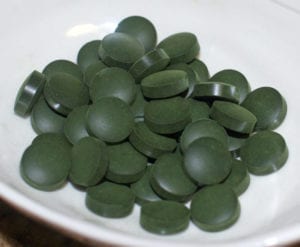Major Retailers Accused of Selling Dangerous Supplements by New York Attorney General
Since the passage of the “Dietary Supplement and Health Education Act,” the supplement industry has effectively been a wild west of snake oil salesmen foisting their sometimes fraudulent and dangerous miracle cures on the American public. We’ve been writing about this terrible federal law for years – a law that the New York Times famously called “The Snake Oil Protection Act” when it was passed. Luckily, the New York Attorney General has stepped in to fill the long-absent FDA’s role by policing the content of some of these mystery dietary supplements.
This is the first (and likely not the last) time that a state Attorney General has actually threatened retailers, instead of manufacturers, with legal action. Walgeens, Walmart, Target and GNC are accused of selling fraudulent supplements. Relying on the Executive Law § 63(12), which allows the state Attorney General “to investigate allegations and prosecute businesses which perpetuate fraud upon consumers or engage in illegality in their business practices,” the AG’s office sent out four cease-and-desist letters. These letters also contained requests for information about the manufacturers of the supplements.
These cease-and-desist letters focused on the contents of several different types of supplements – Gingko Biloba, St. John’s Wort, Ginseng, Garlic, Echinacea, and Valerian Root – which are being sold by the targeted retailers.
In the GNC investigation, the retailer’s St. John’s Wort contained only garlic, rice, and dracaena, which is a tropical houseplant. Seventeen of the tests performed showed no plant DNA whatsoever. It’s a little bit scary to think that people likely were not even ingesting plant matter 17 out of 20 times. Out of all six of GNC’s tested supplements only garlic pills yielded garlic DNA each time.
Target’s supplements were almost as bad, with only garlic containing actual garlic. There was no ginkgo biloba in their pills, which only contained garlic, rice and mung bean. Half of the tests on their ginkgo biloba yielded no plant DNA. Target’s valerian root supplement was just as bad, with no tests finding actual valerian root present.
The only supplement from Walgreens out of this list provided by the New York Attorney General that contains what is stated on the bottle is Saw Palmetto. Gingko, St. John’s Wort, Ginseng, Echinacea, and even Garlic did not test positive for the correct DNA. You heard that right – Walgreens’ Garlic supplement doesn’t even contain garlic more than two-thirds of the time.
Finally, Wal-Mart’s supplements were the worst. According to the report, none of Wal-Mart’s tested supplements contained enough of the correct DNA to qualify as positive in the Attorney General’s test.
It’s bad to defraud consumers and sell seemingly worthless supplements. What’s worse, though, is selling products that contain mystery ingredients which may cause adverse health effects. Although most of the above filler ingredients are harmless, there’s no telling what a person may be allergic to, or what plants they are trying to avoid. For example, Wal-Mart’s Ginseng contains wheat. Someone with celiac disease could be seriously harmed if that ingredient isn’t stated on the label.
Experts say that one way to protect you and your family from these kinds of fraudulent supplements is to buy only USP-certified supplements. USP stands for United States Pharmacopeial, and when “USP” is stamped on the label of a bottle of pills, you at least know that the supplement has been sent to a third party for testing and that the label should be accurate as to the ingredients. However, until the supplement industry is better regulated, it might be good to avoid most supplements completely unless they are prescribed by your doctor and meet rigorous testing standards.
Share This



